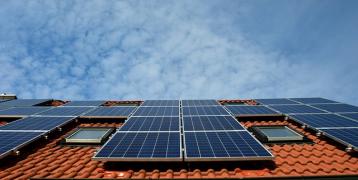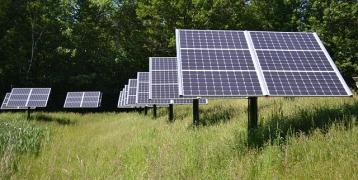Policies for boosting decentralised energy and self-consumption

The transition to a low-carbon economy will rely not on decarbonising centralised energy generation, but instead on the decentralised distribution of renewable energy technologies, with a focus on consuming energy close to the site of generation. This will increase:
- Resilience of the energy system
- Increase efficiency by reducing transmission losses
- Empower local communities by avoiding cash outflows and creating new jobs
The revised Renewable Energy Directive (RED) requires EU states to empower consumers to generate electricity for their consumption (acting as ‘prosumers’) and to be able to sell excess energy into the grid. For this, member states and sub-national authorities will need to update their energy frameworks to introduce new rights, simplify taxation, and ease planning processes.
Good practices
Both Spain and Portugal were early actors in updating their national policy frameworks, introducing rights for prosumers, and simplifying taxation. In Portugal, the national framework was adopted already in 2015 to promote self-consumption by introducing the right for households to connect to the grid, as well as a feed-in tariff for energy sold.
The change resulted in more than 10,000 technology installations already installed by the end of 2016. Spain updated their national framework in 2018 to eliminate barriers introduced in 2015, where taxation on self-consumption on solar photovoltaics (PV) significantly stunted technology uptake. The removal of the tax lead to twice the PV capacity installation in 2019 than 2018.
As well as these national changes, regions also have a role to play in adapting local ordinances related to taxes and permissions. In the Basque Country, ordinances were changed to enable the installation of PV in rural houses, which had previously not been allowed, and to reduce tax burdens to positively impact the expected return on investment.
There is also a need to lighten procedural burdens. In 2019, Lithuania updated its energy frameworks to introduce definitions for prosumers, but also to simplify administrative procedures, which carries lessons for sub-national authorities.
Lithuania reduced the number of administrative procedures for installation of renewable energy technologies from 11 to 4, the number of required documents from 30 to 3, and the length of the process from 105 to 21 days. Lithuania also increased the capacity of installations that prosumers could install. The changes resulted in a 70% increase in new prosumers, and 105% increase in installed capacity in the first year, compared to the previous.
ENERSELVES Achievements
The ENERSELVES project explored decentralised energy and self-consumption, and how to improve legislative frameworks and provide public support on technology uptake. The project results can point the way for other regions looking to support their citizens and companies to start self-consumption.
Regions can look to amend their Operational Programmes to provide financial support and reduce risks for those looking to uptake technologies. This has been done in Extremadura (Spain) which launched a new call for projects to integrate renewables in buildings; and Sardinia (Italy), which set aside funding for microgrid projects, as well as decentralised generation and storage projects.
Authorities can also provide advice and information to citizens, as in Malta which established an online advisory platform with information about decentralised technologies. Similarly, North-East Romania is piloting one-stop-shops within two local authorities, also entailing the development of a database and platform, to provide citizens and businesses with information on available interventions and available funding.
Additional resources
Find out more about ENERSELVE’s achievements on their project website.
Good practices for the article were taken from:
For more on energy self-consumption, see the Policy Learning Platform policy briefs:


Energy self-consumption
Self-consumption of renewable energy can provide financial, environmental, and security benefits for households, businesses, grid operators, and society at large.

